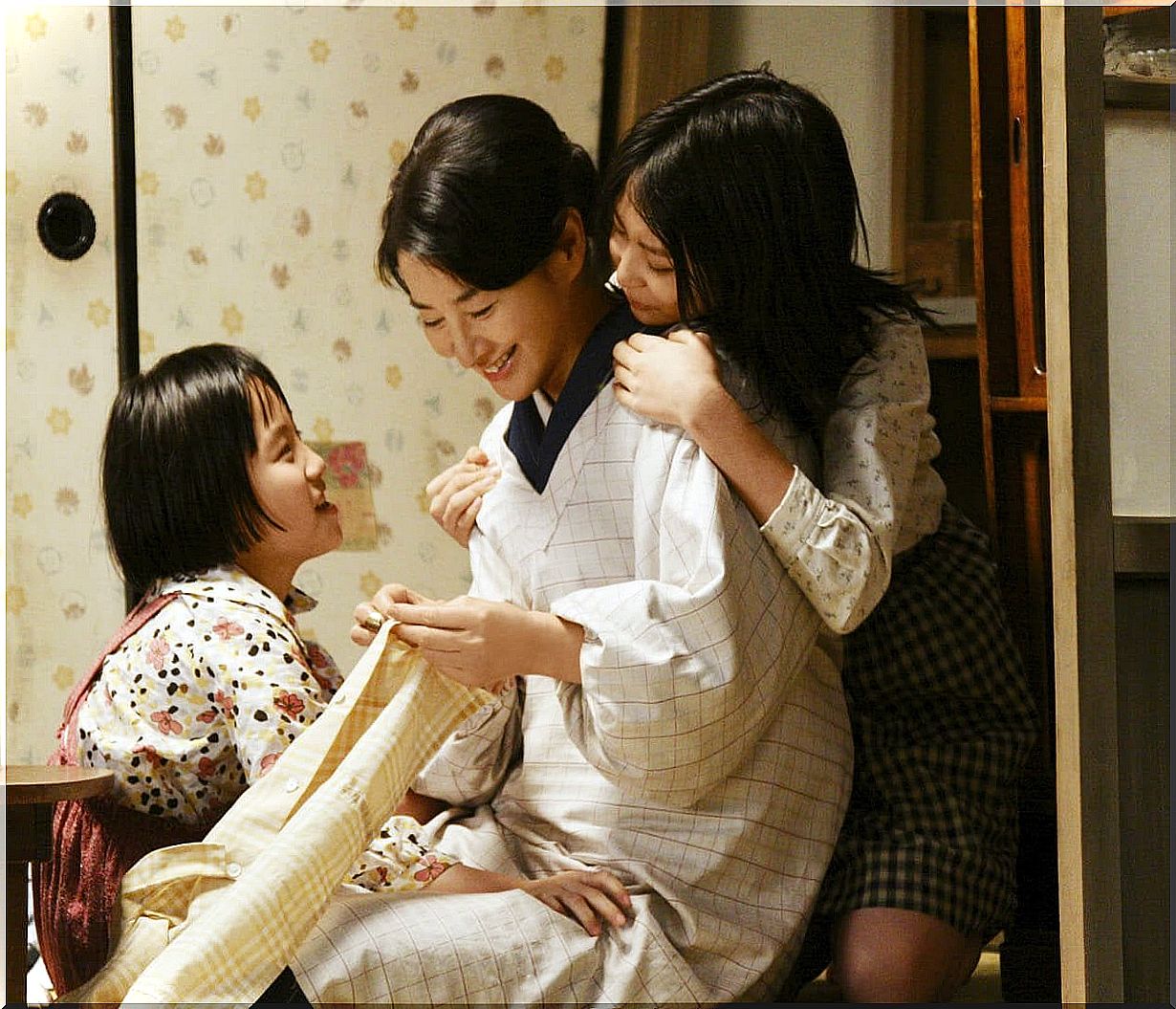Why In Japan Do Children Obey Their Parents So Much?

In Japan, a unique approach to parenting is used. Children are compared to a plant that needs nutrition, training and pruning to grow properly.
The timing of development of certain skills in children depends on the importance that culture places on that skill.
Let’s see, then, some characteristics of Japanese parents’ upbringing.
Teaching with dependence on children
Japanese parenting techniques are fundamentally based on notions of children’s dependence on their mothers.
From birth, mothers form an intimate bond with their babies and continue to reinforce that connection throughout childhood.
As stated in an article titled “Discipline in Early Childhood” published by the Kansas Association for Infancy and Early Childhood Mental Health, Japanese parents traditionally manage their children’s tasks and responsibilities (changing, bathing, setting the table, etc.), even in adolescence.
Just the opposite of teaching children to be autonomous and independent.

Developing this extreme approach is better than modeling, negotiation, and disciplinary techniques when it comes to educating children with social and moral values in Japan.
It is traditional for Japanese mothers to rely on the intimate bond they have established with their children rather than punishment or other forceful methods to persuade and compel children to behave properly.
The role of Japanese mothers
Japanese mothers determine the education, hobbies and even the professional paths that their children will develop and follow.
From this breeding technique, Japanese children learn to obey diligently. They are dependent on their parents’ guidance and direction.
The role of a mother is to be extremely careful and selective in making unique decisions about where children go, what they will eat, what activities they engage in, and what they will use.
Things like babysitting, a movie night away from the baby, or weekend trips just for Mom and Dad are not common. And, on top of that, they are not well accepted in Japanese culture.
The importance of teaching empathy
Considering how one’s actions impact others is crucial to maintaining one of the most valuable things in Japan: group harmony.
This makes empathy the core of Japanese culture. Not surprisingly, it’s also the core of Japanese education.
While Western parents often demand respect from their children (for example, through the use of verbal commands and punishment), Japanese mothers are known to constantly teach their children how their actions affect the feelings of others.
Or even the feelings of animals or objects.
From an early age, Japanese children begin to absorb the importance of considering others before acting.
Children’s discipline in Japan: parents transmit values to their children

Parents provide children with close supervision and instruction. Thus, they guide their development in order to establish routines and patterns of behavior.
However, this parental guidance, little by little, is less necessary as children become able to manage behavior patterns and routines for themselves.
Japan is seen as a strict culture. Of course, this leads many foreign parents to think that Japanese parents apply a very strict set of rules.
However, this is not always the case. While Western parents are more focused on following the rules and imposing punishment, Japanese parents tend to set more rules and not rely as much on punishment.
Obedience and cooperation go hand in hand
In Japan, children are part of small groups (sports, cultural) that emphasize the importance of cooperation and harmony.
The social pressure of these groups acts as regulatory agents. So, indirectly, it requires compliance and teaches children proper behavior and obedience.









